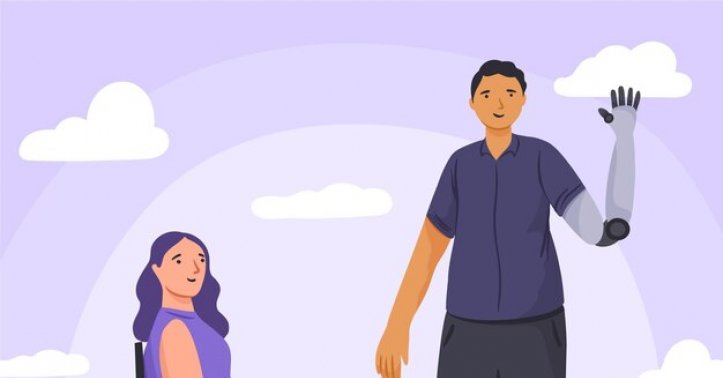
A Disabled Person is a Distinctly Abled Person: Dr. Ritesh Sinha’s Perspective on Empowerment
Dr. Ritesh Sinha, an advocate for inclusivity and empowerment, passionately believes that a disabled person is, in fact, a "distinctly able" person. He emphasizes that every individual possesses unique capabilities that, when nurtured, can transform perceived limitations into extraordinary strengths. Through his work, Dr. Sinha challenges societal norms, urging communities to recognize the inherent potential of persons with disabilities and foster an environment of support, understanding, and equality.
Redefining Disability
In mainstream discourse, disability often carries a connotation of limitation. Dr. Sinha rejects this narrow perspective. He asserts, "Disability is not a restriction; it is a different mode of ability." According to him, many disabled individuals demonstrate exceptional skills in areas like problem-solving, creativity, and perseverance. By shifting the narrative from disability to distinct ability, society can break free from stereotypes and create opportunities for growth and self-realization.
Stories of Distinct Abilities
Dr. Sinha cites inspiring examples of individuals with disabilities who have achieved remarkable feats, showcasing their unique abilities. Stephen Hawking, despite living with ALS, revolutionized theoretical physics. Helen Keller, deaf and blind from a young age, became an author, activist, and a symbol of resilience. Similarly, para-athletes have shown that physical disabilities are no barrier to excellence, often outperforming able-bodied athletes in endurance and determination.
These examples, Dr. Sinha argues, demonstrate that disability often fosters extraordinary abilities, proving that the human spirit is not confined by physical or neurological limitations.
The Role of Society in Empowering the Distinctly Abled
Dr. Sinha stresses that the responsibility to empower disabled individuals lies with society at large. Infrastructure, education, and workplace policies must be inclusive, accommodating the needs of people with disabilities. "When the environment is accessible and attitudes are inclusive, individuals with disabilities can thrive," he explains.
Education plays a pivotal role in this transformation. Schools and institutions must adopt inclusive teaching methods that recognize diverse learning styles and abilities. Moreover, workplaces should implement policies that enable disabled employees to contribute effectively, such as flexible schedules, assistive technologies, and barrier-free environments.
Holistic Approaches to Empowerment
Dr. Sinha’s work integrates holistic approaches like yoga, meditation, and mudra therapy to empower individuals with disabilities. For instance, his development of Riitesh Mudraa—a hand gesture therapy combining traditional Indian practices and modern acupressure—has shown promise in alleviating symptoms of conditions like cerebral palsy. These methods focus on enhancing physical and mental well-being, promoting independence, and instilling confidence.
Changing Perceptions Through Advocacy
Dr. Sinha believes that creating awareness is crucial for breaking down prejudice and misconceptions about disability. He advocates for media representation that celebrates the achievements of people with disabilities, showing their capabilities rather than limitations. Public campaigns, inclusive events, and accessible platforms are essential for fostering acceptance and understanding.
Conclusion: Embracing the Distinctly Abled
Dr. Ritesh Sinha’s vision for a society that values every individual, regardless of ability, is both inspiring and actionable. By redefining disability as distinct ability and fostering inclusivity, he believes we can unlock the immense potential of millions worldwide. Through this perspective, Dr. Sinha invites us to build a world where everyone has the opportunity to shine, demonstrating that true strength lies in diversity.








